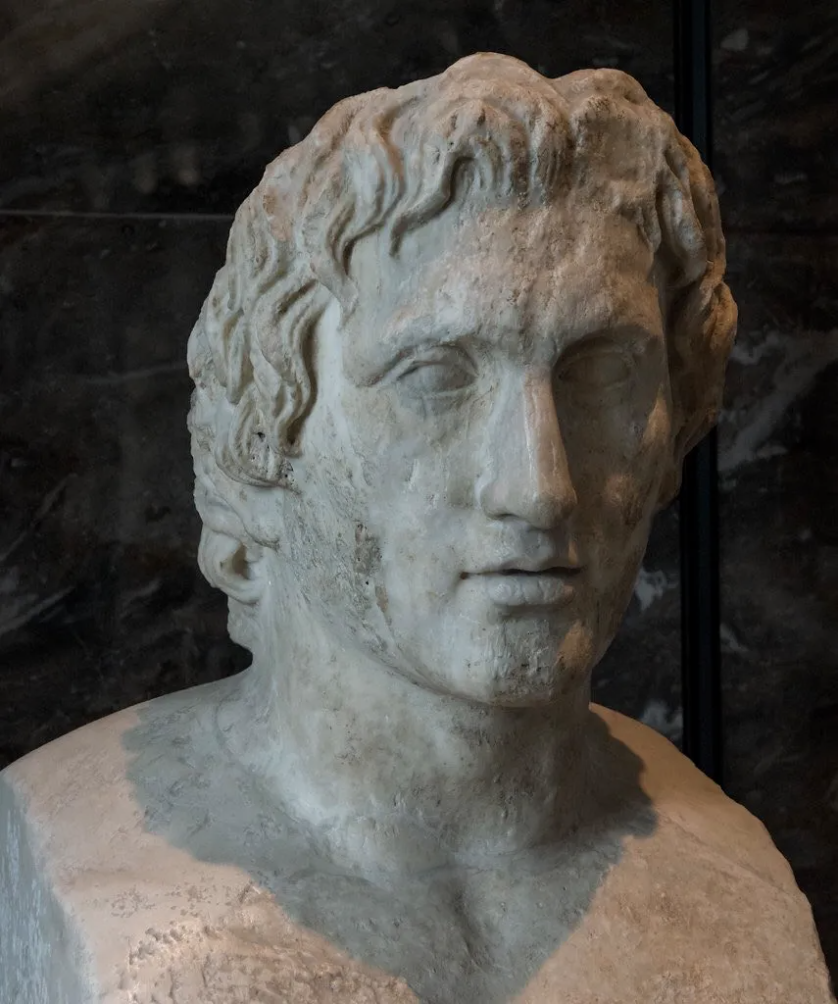“Glory crowns the deeds of those who expose themselves to toils and dangers.”
"True love never has a happy ending, because there is no ending to true love."
"Without knowledge, skill cannot be focused. Without skill, strength cannot be brought to bear and without strength, knowledge may not be applied."
“When we give someone our time, we actually give a portion of our life that we will never take back.”

“Without knowledge, skill cannot be focused. Without skill, strength cannot be brought to bear and without strength, knowledge may not be applied.”
"Are there no more worlds that I might conquer?"
“I do not seek to rule with an iron fist but with wisdom and compassion.”
“Each moment free from fear makes a man immortal.”
“I may have built an empire, but my greatest legacy is the inspiration I leave behind.”
👶 Early Life
Alexander (356-323 BC) was born in Pella, the capital of Ancient Macedonia. He was son of King Philip II and Olympia who was one of his seven wives. Alexander was brought up with the belief that he was divine which was instilled by his mother Olympia. King Philip made sure his son was receiving a noteworthy education by arranging the famous philosopher Aristotle as his tutor. Later, Aristotel’s influence on Alexander was notable as he did not teach him to enforce the Greek culture but honor and merge colonized cultures even after the end of the conquest.
🗡️ Rise to Power
Alexander’s father was often at the battlefield conquering territories so he appointed his son in charge of Macedonia at only 16-years old. After the murder of his father Alexander was immediately crowned king at the age of 20, subdued all potential threats and established his rule. He defeated the Thracian Maedi Tribe that was uprising at the time. After defeating them on their territory the city took after his name and was called Alexandroupolis, which still exists to this day. This battle was a spark for the fire that would fuse his future as a capable leader.
🌑 Dark Era
Despite his successes, Alexander’s later years were marked by paranoia and erratic behavior. After the death of his close friend and general Hephaestion in 324 BC, Alexander’s attitude changed. He killed his generals Cleitus and Parmenion. Cleitus had an argument with Alexander on wearing Persian clothes and in general adopting their customs. The two were intoxicated at the time and what set him off was when Cleitus praised his father. Alexander then stabbed him with a pike. It is said that he was so regretful that he didn’t eat for three days. Additionally, Alexander was suspecting Parmenion’s son of attempting murder against him and sent an agent to assasinate him and his son.
⚔️ Fearless and Risk-Taker
Alexnader's friends didn't want him to fight in the forefront because they stated it wasn't an act of a leader but his valor and passion for glory defied the odds. He was severly wounded at several battles, which may have caught up to him dying in his early thirties. Specifically, at the battle of Granicus he was hit by a scimitar which broke part of his helmet and suffered a shoulder wound from a catapult bolt. At Issus he had a thigh injury. At the Mallian siege, modern-day Pakistan, he ran up the walls of the city with a ladder and got in with two of his bodyguards. Since the enemies couldn't get near him they fired arrows, which injured his ankle and chest. The arrow pierced through his lung causing him to pass out from blood loss. At the siege of Kyropolis, modern-day Tajikistan, he was wounded at his neck or head which took him about two months to recover.
💀 Last Moments
Before his death, Alexander had three final wishes:
- For doctors to carry his coffin, symbolizing that even the best doctors cannot escape death.
- To scatter his wealth along the way, symbolizing that all earthly gains remain on earth.
- To have his hands left hanging out of the coffin, symbolizing that we leave this world empty-handed.
🌟 Legacy
Alexander’s military campaigns brought him deep into Asia. Along the way, he founded over 20 cities and achieved numerous strategic victories, often against larger armies and throughout his rule he did not lose a battle. His accomplishments continue to be studied by military strategists today who proved that human determination can be unbreakable in the face of adversity, hence the quote: “There is nothing impossible to him who will try.”